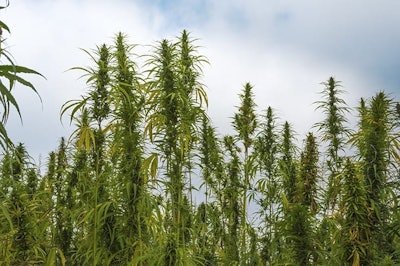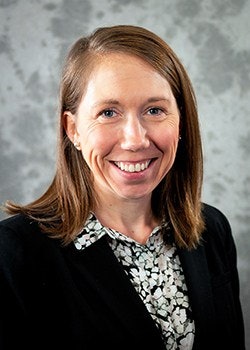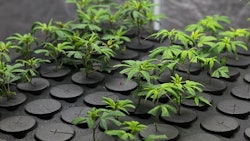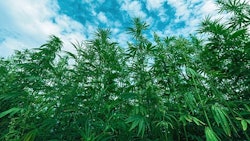
Last week, Katelyn A. Kesheimer, Ph.D., was supposed to be in Colorado at the National Hemp Research & Education in Colorado. The conference, like much of life in general, was interrupted by the coronavirus pandemic.
But that hasn’t stopped some from doing what they can to drive the industry forward this upcoming growing season. Instead, she and more than 70 other researchers from across the country joined a virtual meeting where they continued charting hemp’s future.
 Kesheimer
Kesheimer“We have a vested interest in driving the research forward so growers can get the best crop,” she says.
Kesheimer, assistant professor and extension specialist in entomology and plant pathology at Auburn University, says she received approval to continue her hemp research projects, though workflows may change as government leaders try to stop COVID-19’s spread. But she, like many others in the country, is watching the latest coronavirus projections unfold daily, sometimes hourly.
In terms of timing, she says producers in Alabama don’t have to rush to make any decisions about the 2020 growing season. She says Alabama growers are still interested, but they’re “putting the pause button on everything” right now. When they’re ready, the industry will be there to supply hemp plants to whoever wants them.
“The market right now for every crop is in flux,” Kesheimer says. “We still have a bit of wiggle room for planting dates over the next couple of weeks from southern to northern Alabama, so I think everyone is just watching the market and waiting to see what happens.”
The Alabama Department of Agriculture and Industries received nearly 750 qualifying applications for its 2020 hemp program. Growers and processors were approved in February. However, their next steps may ultimately depend on whether they’ve already signed contracts or purchased their seeds or clones for the year.
“The people in the industry I’ve spoken to are still growing plants, they’re still looking for producers to buy them, but I think a lot of producers now are starting to back off a little bit just because after last year, we had a lot of surplus product,” she says. “There’s a lot of uncertainty in terms of what are they going to do with their product, especially if we’re sheltering in place for weeks and months on end.
“I think it’s going to be a gamble on a lot of growers’ part[s] to play their cards and see what happens. It might come down to, How much did they invest? Did they build a brand-new greenhouse? Did they purchase some land? I don’t think it’s enough to decimate the industry, but it’s going to take a hit like everything else is right now.”
Kesheimer is specifically concerned about hemp producers growing for cannabidiol (CBD). She says that’s what most Alabama farmers grew in 2019, their first hemp-growing season since 1937 as part of the state’s Industrial Hemp Research Pilot Program. And as CBD shops, department stores, beauty retailers and other stores close because of the coronavirus, she says that could hamper demand for farmers’ products. If they’re still sitting on their 2019 product, they likely won’t be signing future contracts with producers.
2019 Alabama Hemp Participants
| Approved | Licensed | Active | |
| Growers | 182 | 157 | 126 |
| Processors | 65 | 59 | 25 |
| Universities | 5 | 5 | 2 |
While the coronavirus could present difficulties in the short term, Kesheimer wonders whether it could ultimately help the industry mature in the long term.
“I think if anything, this global crisis might help shift the field toward that fiber and grain market because those can actually be used as essentials,” she says. “If we bought them out with cotton prices, then we can really see a place, especially in Alabama, but right now you need capital, and getting that capital is going to be difficult.”
Keshmeimer says she thinks growers will still plant hemp, though perhaps less than planned when they completed their application. She knows one farmer, for example, who will scale back from growing 7 acres of hemp to just 2; he still wants to try growing it but doesn’t want to risk—or bank—on the crop.
“I don’t think the industry is going to crumble,” she says. “… I think there’s enough momentum, enough people interested [in] bringing this back as a real agriculture commodity. They’re invested financially with time and interest.”
She isn’t sure how or if prices, especially for CBD, will recover following last year’s record highs of $3 to $4 per percent CBD content per pound to the current price of $0.75 to $1 per percent CBD content per pound. There’s a lot of uncertainty of how everything will play out, but her advice remains the same.
“We’re saying the same thing we’ve been saying from the beginning: Don’t risk anything more than you’re willing to lose because there’s so much uncertainty, especially in the CBD market,” Kesheimer says.
























